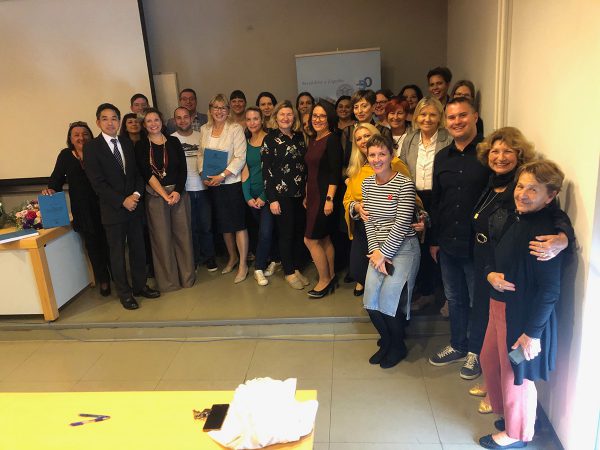Title: Ethics and Ecology in Textile Finishing and care
Project funding: Croatian Ministry of Science, Education and Sports
Code: 117-1171419-1382
Project Leader: Prof. emeritus dr.sc. Ivo Soljačić
![]()
Project Summary:
Modern textile finishing processes have to fulfill high demands due to the expectations of new textile materials properties and their persistence during care. Especially interesting in this respect are the new production processes of socks which include implementation of microcapsules that can release active materials for skin moisturizing. Their primal role is prevention of dryness, dandruff, and allergenic reactions of the skin.
The most suitable analytical methods for determination of durability to washing, friction and sweat will be tested. Durability to washing of products with special properties will be tested with different amounts of anionic and cationic tensides in liquid detergents. The mechanism of adsorption and desorption, their influence on primary effect of the treatment, and the influence of the pH value and the mechanical way of treatment will be tested. On the ground of the obtained results, analytical methods for determination of micro components in the macro components of textile materials should be proposed, without regards to the specifications of the materials or the method of the treatment. The testing will involve a review of the analytical method of each individual analytical procedure as well as its impact on the obtained information. The parameters of the analytical procedure will be worked out with the purpose of restoration of historical textile by destructive and non-destructive methods for the preservation of national heritage.
European controlling methods of new materials have ethical demands involving the human population health which demands an environmental friendly process. For this purpose the processes of textile finishing and care will be optimized. The possibility of obtaining new preventive properties, which were not previously present on the textile material or improvement of present protection, will be tested. The impact of washing cycles with detergent and UV absorber on pastel colored textile materials made of cotton, polyester and their mixtures on UPF and the shade change will be investigated. The quality control of water and effluents will be based on the determination of micro quantities of potential allergens, heavy metals, pesticides, dyes, and tenzides. The traces of solvents will be controlled on the clothing material and in the air during the chemical cleaning and further treatment processing.
![]()

